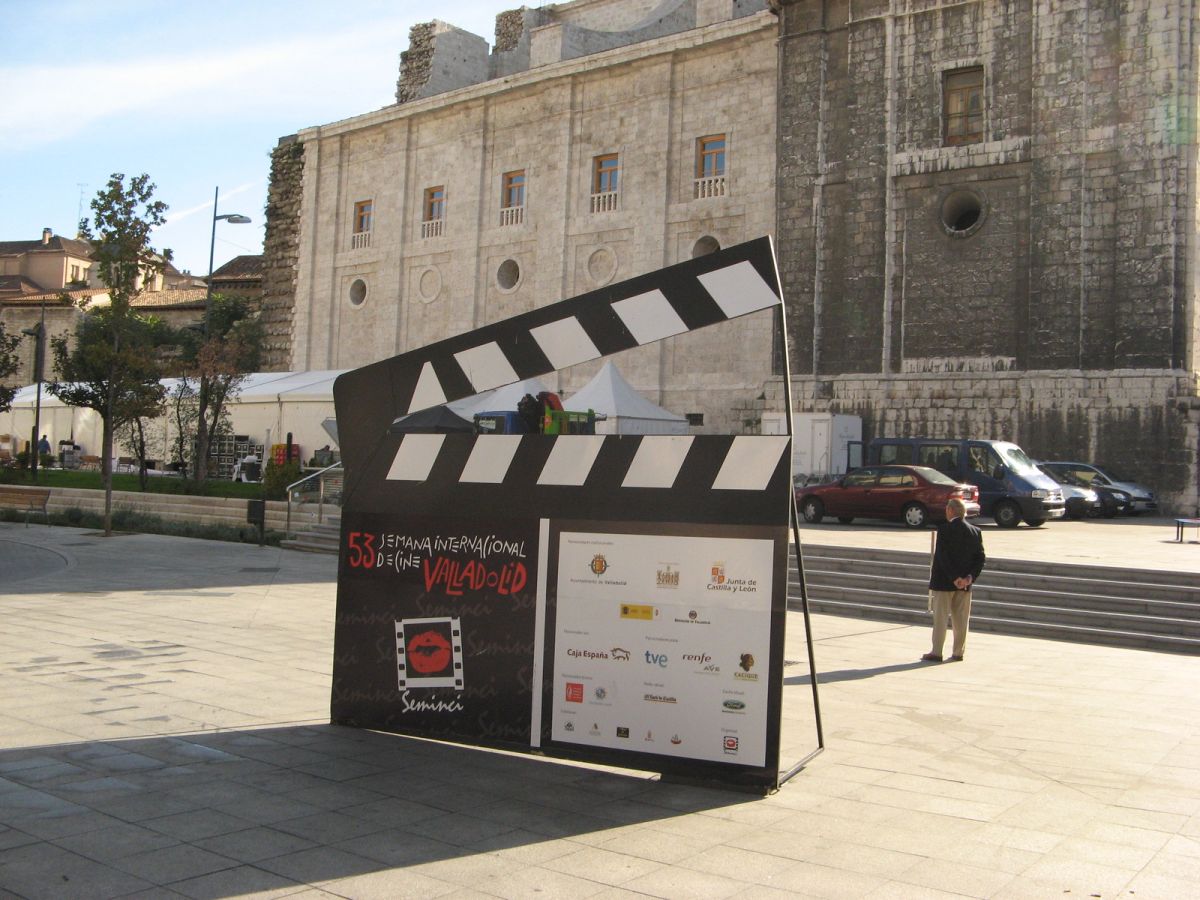Tales from a year abroad: SEMINCI Film Festival

Like many Spanish cities, Valladolid’s film culture is an eclectic mix of dubbed Hollywood productions, family films, and Spanish-language indies. Its cinemas are not particularly glamorous — despite a certain undeniable retro charm — and a combination of the pandemic and streaming has left the industry largely in decline outside the major cities. Yet, out of this comes one of the country’s largest film festivals.
Suddenly, the city is filled with SEMINCI’s green carpets leading toward gloriously repurposed theatres that become packed cinemas for a week of film celebrations. It is both a showcase of the diversity of Spanish Cinema and an opportunity for locals and critics alike to engage with some of the year’s most anticipated films such as Decision to Leave and The Banshees of Inisherin. I considered my Spanish to be of a high enough standard to attend some of the solely Spanish language screenings and was rewarded immensely with a wonderfully diverse range of films that I hope can secure a UK release someday.
One of the clear standouts was Modelo 77, a prison drama set during the years of the transition between the Franco Dictatorship and the beginnings of contemporary Spanish democracy (1976-1978). Inspired by true events, it is a politically-charged thriller that plays like a mix of Steve McQueen’s brutal IRA drama Hunger and more conventionally crowd-pleasing film like The Shawshank Redemption. This balance of exciting action, biting political discussion, and palpable suffering is what sets this film apart from many others within its genre.
First-time inmate Manuel (Miguel Herrán, best known as Río from Money Heist) shares a cell with prison veteran Pino (Javier Gutiérrez). As they strike up an unlikely bond and kinship, both soon become leading figures within a rebellion group known as COPEL , and demand amnesty and freedom for those wrongfully imprisoned and abused during the dictatorship.
Modelo 77 has beautiful cinematography that makes use of the drab rusty prison to great effect, framing its characters within geometric patterns that are fiercely cinematic but also key to understanding the film’s geography and the way that the prisoners manoeuvre the spaces. Similarly, as the inmates do not wear a uniform but their own clothing, the costumes capture the 1970s fashion with stripy shirts and chain necklaces. This gives the film an extra layer of style and effervescence whilst also functioning as important symbols of social class both within the prison and outside of it. Overall, it is this balance between exciting genre cinema and a pointed political commentary that makes Modelo 77 one of the best Spanish films at the festival.
Walking around Valladolid, one gets the sense that change is perhaps not the city’s best forte. The city centre is full of rather old buildings and, based on personal experience, there seems to be a lack of general diversity. As far as I can tell, there appears to be a couple explicitly queer bars at best and thus, when SEMINCI had numerous films focused on LGBTQ+ issues, I was surprised – perhaps I had misjudged the city after all.
A city once being named ‘Fachaolid’ for its supposed right-wing tendencies was suddenly exhibiting a sex-filled, frank drama about a young trans woman dealing with gender dysphoria and awkward Tinder dates (Mi Vacío y Yo), merely days after screening L’Immensita which follows a young person exploring their gender identity in 1970s Italy against the backdrop of a patriarchal, conservative society. Both films are equally refreshing not just in their subject matter but in the considered thoughtful tones in which they explore it.
In L’Immensita, Penelope Cruz plays the protagonists’ mother who indulges in her children’s imaginations and games, much to her cheating husband’s dislike. The film is best when it leans into this melodrama, cutting away to fantastical musical sequences and exploring the playfulness and the heightened emotions of youth. On the other hand, Mi Vacío y Yo refuses any kind of extremity altogether and instead situates the viewer within the reality of transitioning using Spain’s healthcare system, embracing all the questioning, bureaucracy, and emotional waves of joy and sadness that come with it.
SEMINCI is a welcome gift to the city of Valladolid, an enriching cultural presence that brings with it some of the most interesting European cinema and an opportunity for premieres of exciting new Spanish cinema. Perhaps, some of these films may not be available in the UK in the near future (such as Estefanía Cortés’ brilliantly bizarre debut Eden) but I urge you to seek out similar films from years past.
For every new Pedro Almodóvar film, there are dozens of Spanish films that simply do not make it onto people’s radar. One major obstacle is language; many of these films are simply never translated for wide release, but marketing and distribution are also challenges; word-of-mouth doesn’t exist for films unceremoniously dropped into the depths of Netflix.
Film festivals are a great place to start discovering new films. Whether its SEMINCI, our very own MANIFF, or even Cannes, there are always gems to be found that may have been unfortunately forgotten by a film culture which overwhelmingly focuses on franchise fare, the Oscars, and little in between.







